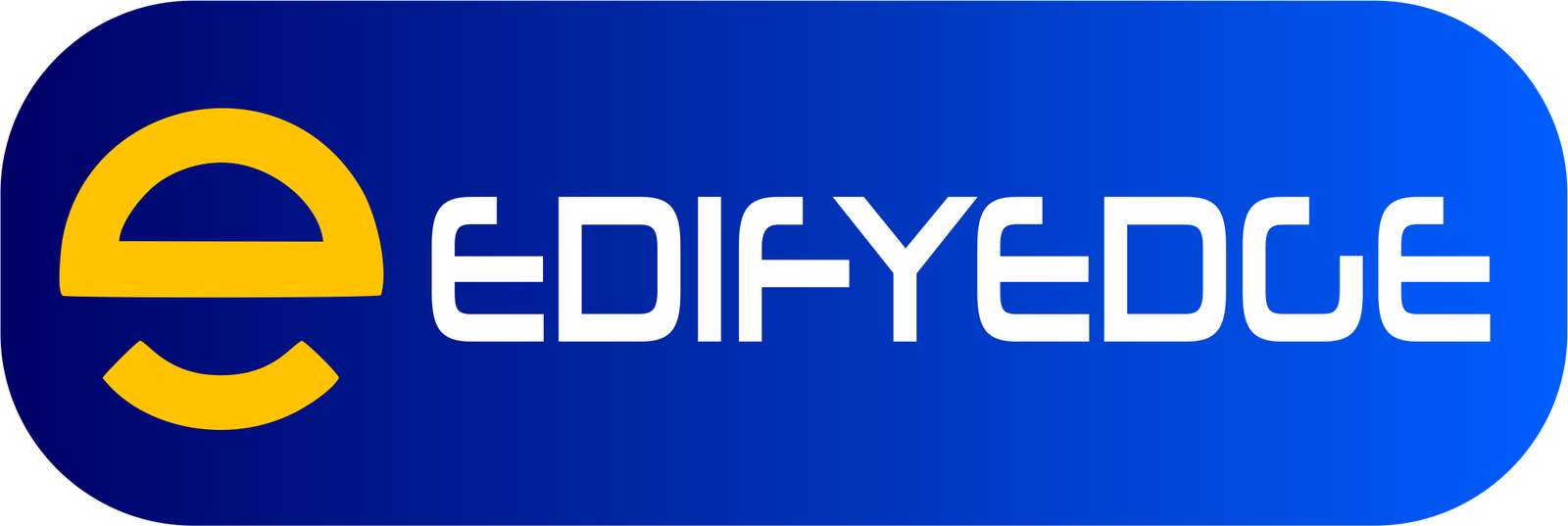What are Chase Business Loans?
Chase Business Loans are financing solutions offered by JPMorgan Chase Bank to help businesses cover various expenses, such as working capital, equipment purchases, business acquisitions, or real estate investments. Chase provides different types of business loans, including term loans, lines of credit, and commercial real estate loans.
Term loans from Chase are lump-sum borrowings that are repaid over a fixed period, typically ranging from one to seven years. These loans can be used for a variety of purposes, such as purchasing equipment, expanding facilities, or funding business growth initiatives.
Lines of credit, on the other hand, offer businesses a revolving source of funds that can be drawn upon as needed and repaid with interest. Chase’s business lines of credit are suitable for managing cash flow fluctuations, covering unexpected expenses, or taking advantage of short-term opportunities.
Chase also offers commercial real estate loans to help businesses purchase, refinance, or renovate commercial properties. These loans can be tailored to fit the specific needs of the borrower, with options for fixed or variable interest rates and various repayment terms.
To be eligible for Chase Business Loans, businesses typically need to meet certain criteria, such as being in operation for a minimum period (often one to two years), demonstrating sufficient revenue and cash flow, and having a strong credit profile. Additional requirements may vary depending on the specific loan product and the borrower’s financial situation.
Loan Amounts and Terms
Chase offers business loans ranging from $10,000 to $500,000 for qualified borrowers. The repayment terms typically range from 12 to 84 months, providing flexibility to match your business’s cash flow needs. Interest rates are competitive and can vary based on factors such as your business’s creditworthiness, loan amount, and repayment term.
For smaller loan amounts, up to $50,000, Chase may offer fixed interest rates, providing predictable monthly payments throughout the loan term. Larger loan amounts may have variable interest rates tied to market indexes like the Prime Rate or LIBOR, which can fluctuate over time.
Chase’s business loan specialists work closely with borrowers to determine the appropriate loan amount, repayment term, and interest rate structure based on their specific financial situation and business goals. This personalized approach ensures that the loan terms align with your business’s unique needs and ability to repay the loan comfortably.
Application Process
To apply for a Chase business loan, you’ll typically need to follow these steps:
-
Gather Required Documentation: Chase will require various documents to assess your business’s financial standing and creditworthiness. These may include personal and business tax returns, financial statements, business licenses, and proof of collateral (if applicable).
-
Complete the Application: You can apply for a Chase business loan online, over the phone, or by visiting a local branch. The application will require detailed information about your business, such as its legal structure, industry, revenue, expenses, and the purpose of the loan.
-
Submit Supporting Documents: After completing the initial application, you’ll need to provide the requested supporting documents, which may vary depending on your business type, loan amount, and other factors.
-
Undergo Underwriting: Chase’s underwriting team will review your application and supporting documents to assess your business’s creditworthiness, cash flow, and ability to repay the loan. They may request additional information or clarification during this process.
-
Receive Loan Decision: If approved, Chase will provide you with the loan terms, including the interest rate, repayment schedule, and any collateral requirements. If denied, they will explain the reasons for the denial, and you may have the opportunity to appeal or reapply.
-
Accept and Close the Loan: If you accept the loan terms, you’ll need to sign the necessary documents and provide any required collateral. Once everything is finalized, the loan funds will be disbursed to your business account.
It’s essential to provide accurate and complete information throughout the application process, as any discrepancies or omissions could delay or jeopardize your loan approval. Additionally, Chase may have specific criteria for different loan products, so it’s advisable to familiarize yourself with the requirements for the particular loan you’re seeking.
Fees and Rates
Chase business loans come with various fees and rates that you need to be aware of before applying. One of the primary fees is the origination fee, which is a one-time upfront cost charged by the lender for processing and underwriting the loan. Origination fees for Chase business loans typically range from 0.5% to 1% of the total loan amount.
Another important consideration is the closing costs, which are additional expenses associated with finalizing the loan. These costs may include appraisal fees, title insurance, and legal fees. Closing costs can vary depending on the loan amount and the specific requirements of your business.
When it comes to interest rates, Chase offers both variable and fixed-rate options for their business loans. Variable rates fluctuate over time based on market conditions, while fixed rates remain constant throughout the loan term. Fixed rates provide more predictability and stability for your business’s cash flow, but they may be slightly higher than variable rates initially.
The interest rates for Chase business loans can vary depending on factors such as your business’s creditworthiness, loan amount, loan term, and the type of collateral provided. Generally, businesses with stronger credit profiles and more substantial collateral will qualify for lower interest rates.
It’s essential to carefully review and understand all the fees, closing costs, and interest rates associated with a Chase business loan before committing. Discuss these factors with a Chase loan officer to ensure you have a clear understanding of the total cost of borrowing and how it will impact your business’s financial situation.
Eligibility Requirements
To qualify for a Chase business loan, your business typically needs to meet certain eligibility criteria. Here are some common requirements:
Business Age: Chase generally prefers to lend to established businesses that have been operational for at least two years. However, they may consider younger businesses on a case-by-case basis, especially if the owners have a strong credit history and substantial collateral.
Annual Revenue: Chase looks for businesses with a consistent and substantial annual revenue stream. While the exact revenue threshold may vary depending on the loan product and your industry, most businesses should have at least $100,000 in annual revenue to be considered.
Credit Score: Your personal and business credit scores play a significant role in determining your eligibility for a Chase business loan. Chase typically requires a minimum personal credit score of 680 and a business credit score of at least 160 (on the Paydex scale). Higher credit scores generally increase your chances of approval and may qualify you for better terms.
Collateral: Depending on the loan amount and type, Chase may require collateral to secure the loan. Common forms of collateral include real estate, equipment, inventory, accounts receivable, and cash reserves. The collateral requirements are typically more stringent for larger loan amounts.
It’s important to note that these eligibility requirements are general guidelines, and Chase may consider additional factors, such as your industry, business plan, and overall financial health, when evaluating your loan application. Providing detailed financial statements, tax returns, and a solid business plan can strengthen your case, even if you don’t meet all the eligibility criteria.
Advantages of Chase Business Loans
Competitive Rates: Chase is one of the largest banks in the United States, which allows them to offer competitive interest rates on their business loans. Their rates are often lower than those offered by smaller lenders or alternative online lenders, which can result in significant savings over the life of the loan.
Large Lending Capacity: As a major financial institution, Chase has a large lending capacity, which means they can provide substantial loan amounts to businesses of all sizes. Whether you’re a small startup or an established corporation, Chase has the resources to meet your financing needs.
Established Reputation: Chase has a long-standing reputation as a trusted and reliable financial institution. They have been in business for over 200 years and have a proven track record of providing quality financial services to businesses across various industries. This reputation can give borrowers peace of mind knowing that they are working with a reputable and stable lender.
Alternatives to Chase
For businesses that don’t qualify for a Chase loan or prefer to explore other options, there are several top lenders to consider, including both traditional and online lenders.
Traditional Bank Lenders:
- Bank of America: Offers a range of business loans, lines of credit, and commercial real estate financing options for small to large businesses.
- Wells Fargo: Provides term loans, lines of credit, equipment financing, and other loan products for businesses of various sizes.
- U.S. Bank: Offers business loans, lines of credit, commercial real estate loans, and SBA loans for small to large businesses.
Online Lenders:
- Lendio: An online marketplace that connects businesses with various lenders offering term loans, lines of credit, equipment financing, and more.
- Fundbox: Provides revolving lines of credit and term loans for B2B businesses, with fast approval and funding processes.
- Kabbage: Offers lines of credit up to $250,000 for small businesses, with a streamlined online application and approval process.
- OnDeck: Provides term loans and lines of credit for businesses, with flexible eligibility requirements and fast funding.
- BlueVine: Specializes in lines of credit and invoice factoring for small businesses, with competitive rates and easy online applications.
When considering alternatives to Chase, it’s essential to compare interest rates, fees, repayment terms, and eligibility requirements to find the best fit for your business’s specific needs and financial situation.
Application Tips
To increase your chances of getting approved for a Chase business loan, it’s essential to prepare thoroughly and avoid common pitfalls. Here are some tips to keep in mind:
-
Maintain a Strong Credit Score: Chase places significant emphasis on your personal and business credit scores. Aim for a score above 680 to improve your approval odds. Monitor your credit reports and address any errors or delinquencies before applying.
-
Provide Detailed Financial Statements: Be prepared to submit comprehensive financial statements, including profit and loss statements, balance sheets, and cash flow projections. Ensure these documents are accurate, up-to-date, and paint a clear picture of your business’s financial health.
-
Demonstrate Sufficient Cash Flow: Lenders want to see that your business generates enough cash flow to comfortably cover loan payments. Highlight your revenue streams, expenses, and projected cash flow in your application.
Have a Solid Business Plan
-
A well-crafted business plan can showcase your industry knowledge, growth strategies, and ability to repay the loan. Include detailed market analysis, competitive advantages, and realistic financial projections.
-
Provide Collateral: Chase may require collateral, such as real estate, equipment, or inventory, to secure the loan. Having valuable assets to pledge can improve your chances of approval and potentially qualify you for better terms.
-
Avoid Applying with Multiple Lenders Simultaneously: Each time you apply for a loan, it results in a hard inquiry on your credit report, which can temporarily lower your score. Limit your applications to one or two lenders at a time.
-
Be Transparent and Honest: Lenders value transparency and honesty. Disclose any past financial challenges, legal issues, or other potential red flags upfront. Attempting to conceal information can damage your credibility and jeopardize your application.
-
Follow Up and Be Responsive: Respond promptly to any requests for additional information or documentation from the lender. Staying on top of the process can demonstrate your commitment and organization skills.
By following these tips and avoiding common mistakes, you can present a stronger application and increase your chances of securing a Chase business loan on favorable terms.
Customer Reviews
Chase business loans have received mixed reviews from customers, with some praising the competitive rates and easy application process, while others criticize the strict eligibility requirements and lengthy approval times.
Many small business owners appreciate the variety of loan options available through Chase, including term loans, lines of credit, and SBA loans. They report that the interest rates and fees are generally competitive, especially for well-established businesses with strong credit histories.
“As a long-time Chase customer, I found the process of applying for a business loan to be straightforward and efficient,” says one restaurant owner. “The loan officer was knowledgeable and helpful, and I was able to secure the funding I needed to expand my business within a reasonable timeframe.”
However, some customers have expressed frustration with Chase’s stringent eligibility criteria, which can make it difficult for newer businesses or those with less-than-perfect credit to qualify. Others have complained about long approval times, with some applications taking several weeks or even months to process.
“I was really disappointed with my experience trying to get a Chase business loan,” says a retail store owner. “Despite having a solid business plan and decent credit, my application was denied without much explanation.
FAQs
What fees are associated with Chase business loans?
Chase business loans typically come with fees such as an origination fee, which can range from 0.5% to 1% of the loan amount. There may also be late payment fees, prepayment penalties, and annual fees, depending on the specific loan product. It’s important to carefully review the terms and conditions to understand all the fees involved.
What are the eligibility requirements for a Chase business loan?
Chase has specific eligibility criteria for its business loans, which may include factors such as your business’s annual revenue, time in operation, credit score, and debt-to-income ratio. Generally, you’ll need to have been in business for at least two years, have a good credit history, and demonstrate the ability to repay the loan.
How long does it take to get approved for a Chase business loan?
The approval process for a Chase business loan can vary depending on the loan type and your specific circumstances. In general, it may take several weeks to a few months to complete the application process, gather the required documentation, and receive a decision from Chase.
What are the repayment terms for Chase business loans?
Chase offers various repayment terms for its business loans, ranging from short-term options like lines of credit to longer-term loans with repayment periods of up to 20 years or more. The repayment schedule and interest rates will depend on factors such as the loan amount, your creditworthiness, and the specific loan product you choose.
Can I prepay my Chase business loan without penalty?
Some Chase business loan products may have prepayment penalties, while others may not. It’s essential to review the terms and conditions of your specific loan to understand if there are any fees or penalties associated with paying off the loan early. In some cases, prepaying the loan can save you money on interest charges.



